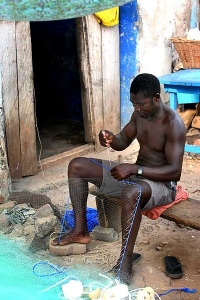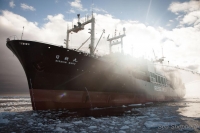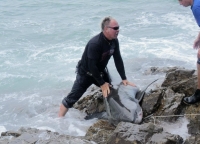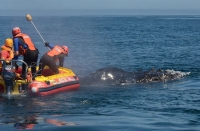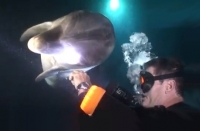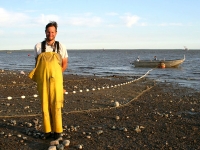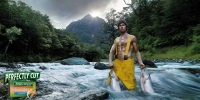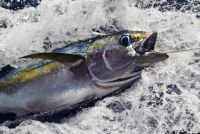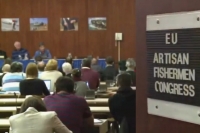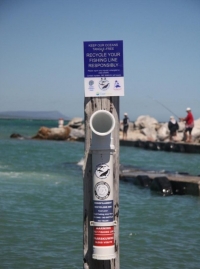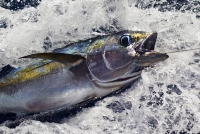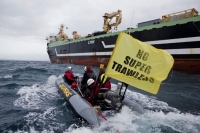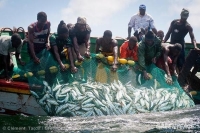As part of the City of Cape Town’s integrated approach to marine law enforcement, a multi-agency operation was conducted over the weekend to ensure extra police visibility with the opening of the West Coast Rock Lobster (WCRL) season on Friday.
By 2100, the world’s oceans will be warmer and more acidic, with less dissolved oxygen and lower yields of fish and shellfish. And that will make life very difficult for up to 870 million of the world’s poorest people who rely on the sea for food, jobs and income.
Over 80% of all seafood stock is overfished, according to the 2011 report by the Food and Agriculture Organisation (FOA) of the UN. How can we make the shift to fishing responsibly?
Consumers are increasingly aware of the environmental impacts of their seafood purchases and want to make the right choices,” said Martin Purves, MSC Southern Africa Programme Manager.
Japan's fisheries agency says it has temporarily suspended its Southern Ocean whale hunt after clashes with anti-whaling activists.
A South African court has convicted a man for killing a great white shark in the country's first-ever ruling on such a case, according to the ministry of agriculture and fisheries.
Last Thursday, members of the SA Whale Disentanglement Network were called in to help free a 9m humpback whale that was entangled in fishing ropes north of Cape Town. The fact that there even needs to be such a team speaks volumes about the wastefulness of SA fishermen.
This amazing video, taken during a manta ray dive off the Kona coast of Hawaii, shows a bottlenose dolphin, tied up in fishing line, asking a human diver for help, and the diver carefully freeing him.
Future of Fish is a nonprofit that is helping entrepreneurs who hope to reinvent the seafood industry by attacking problems throughout the long supply chains used by today's industrialized fisheries.
We know that our oceans are currently being depleted by the international reliance and consumption of fishmeal. Yet the production of fishmeal has remained relatively constant over the past two decades, consuming about a third of the global catch of fish.
In a shift for corporate/NGO relationships, the World Wide Fund-South Africa and Woolworths has announced a targeted sustainability partnership.
John West, one of Australia’s leading canned fish manufacturers, has pledged to stop using destructive fishing methods. They have committed to phasing out the use of wasteful Fish Aggregating Devices (FADs) by 2015.
The monitoring of tuna fisheries must be strengthened and transfers of fish at sea banned to end the overfishing crisis in the Indian Ocean, Greenpeace International said earlier this month after it again found illegal fishing operations in the region.
Small-scale fishermen from across Europe are joining forces to put sustainable, artisanal and low-impact fishing at the heart of the on-going reform of European Union (EU) Common Fisheries Policy (CFP).
Beaches on the Western, Northern and Eastern Cape Coast will soon have their very own bins where fishermen can throw away their broken or used lines.
Greenpeace held talks with the Mauritian government and key stakeholders about sustainable tuna fisheries this past weekend following the arrival of the Rainbow Warrior in Port Louis.
Oceans make up 99% of the Earth's living space. Since South Africa is surrounded by two of the world’s five oceans, National Marine Week should be a significant celebration of these seascapes, and the economic, tourism, and biodiversity services provided by them.
In a huge victory against the plunder of our oceans, the Australian Federal Environment Minister Tony Burke has announced new laws that will ban the Margiris super trawler, now known as the Abel Tasman, from operating in Australian waters for up to two years.
The local fishing community in Thiaroye, Dakar, now really has a reason to dance. Since the new Senegalese government took action to stop overfishing, fisheries in the region are slowly regenerating, and fishermen are returning home with healthier catches, writes Mike Baillie.








